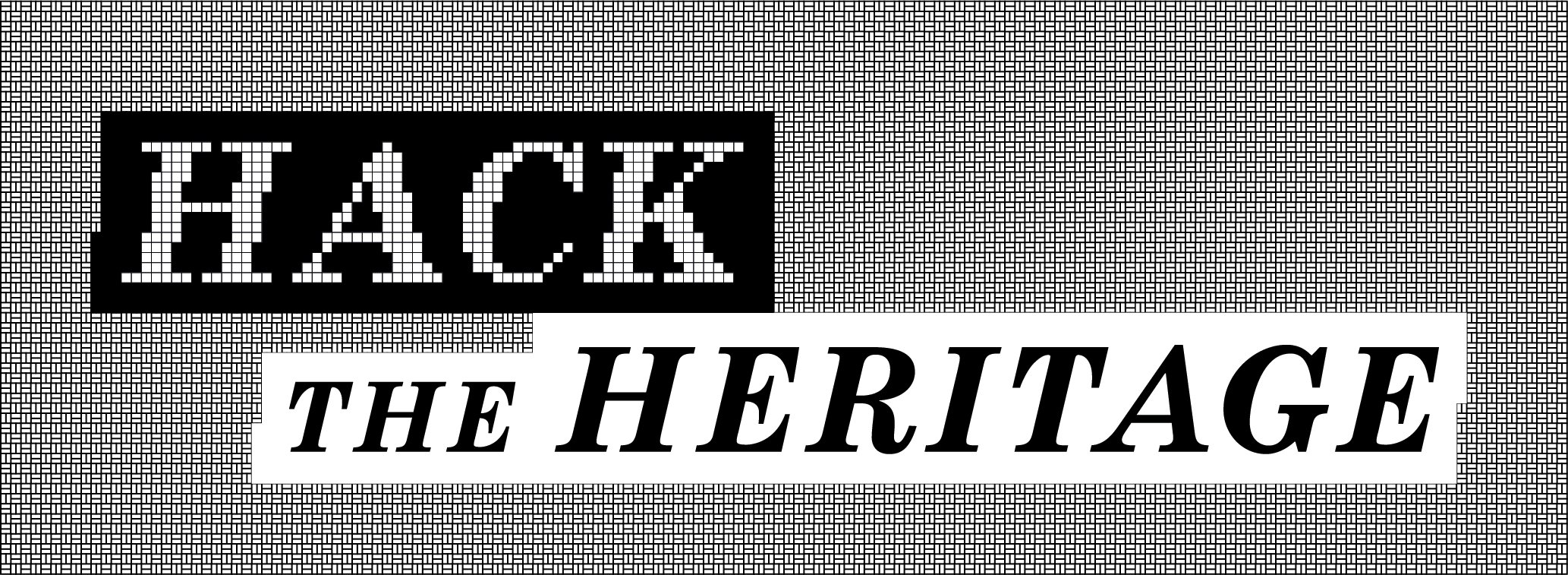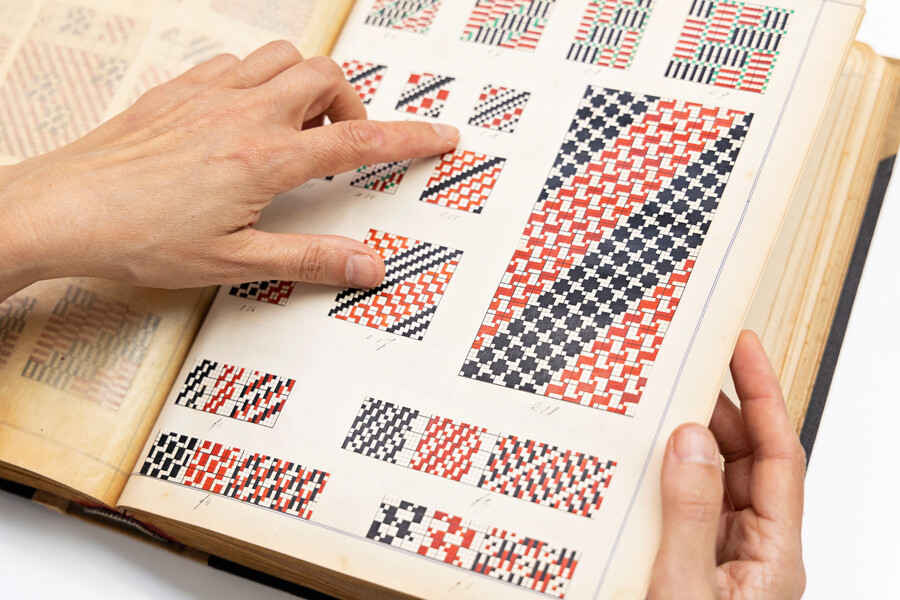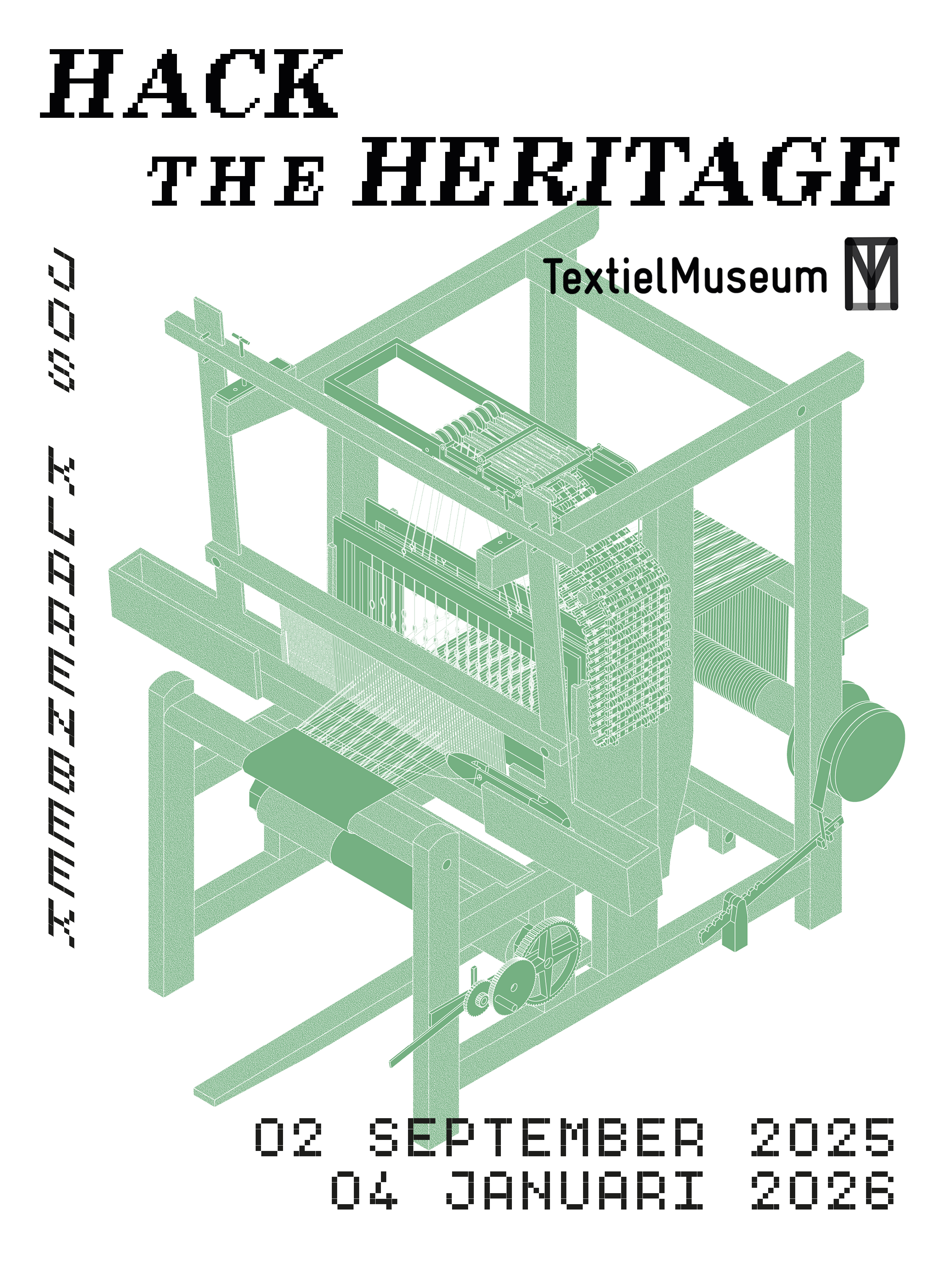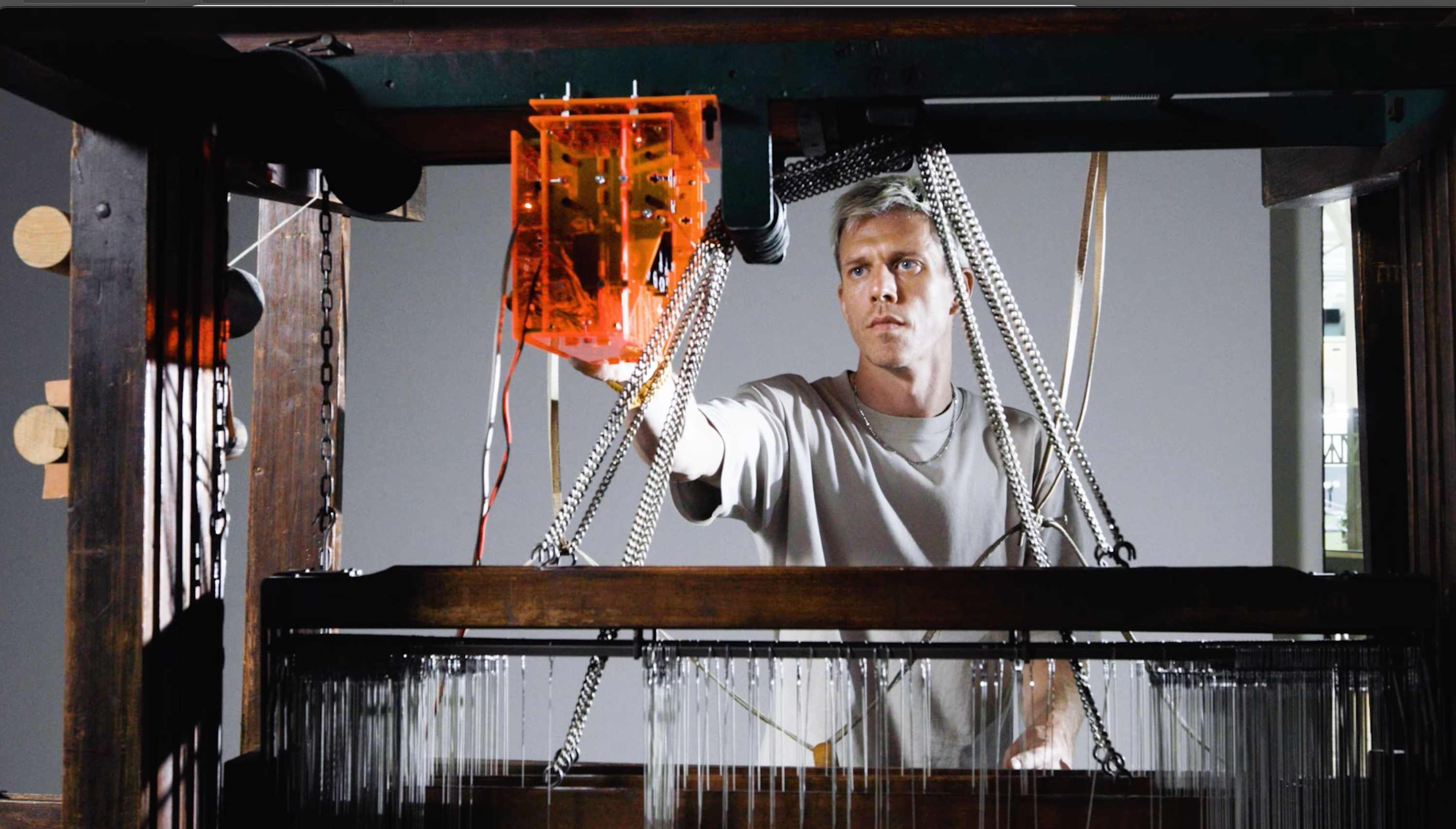
Hack the Heritage
With Hack the Heritage, designer Jos Klarenbeek, in collaboration with the TextielMuseum, explores how industrial weaving heritage such as old looms and books from the Tilburg Textile School can be “hacked” by adapting them with electronics and digitizing them. By making them usable and accessible again for research and experimentation, these old machines gain renewed value.
About the project
From the summer until the Christmas holidays, two historic machines from the TextielMuseum’s collection will be on display in the museum’s Project Space. Klarenbeek will hack them with electronic modules operated with self-developed software. In this way, the machines come back to life in a manner that resonates with our current digital way of thinking and working.
In addition to adapting the machines, the associated craft knowledge is also being “hacked.” Several old, handwritten and hand-drawn weaving books from the former Tilburg textile school have been digitized. During the project, research will be conducted into how these books can be applied in programming the machines.

Photo by Josefina Eikenaar
Work in progress
The presentation is a work in progress. During museum opening hours, Klarenbeek will regularly be present on weekdays to tinker with the machines, program them, and use them for weaving experiments. In addition, throughout the course of the project, events will take place in which, among others, students, designers, and researchers will contribute ideas and collaborate, learning together about—and with—these old machines.

Illustration by Jos Klarenbeek
About Jos Klarenbeek
Jos Klarenbeek (1988, Utrecht) trained as a mathematician and designer. In this project, he combines his fascination with the binary representation of textiles with his knowledge of coding and electronics. After all, the first looms laid the foundation for the development of programmed machines – creating a bridge between craft and algorithm

Still from video by Roel van Tour